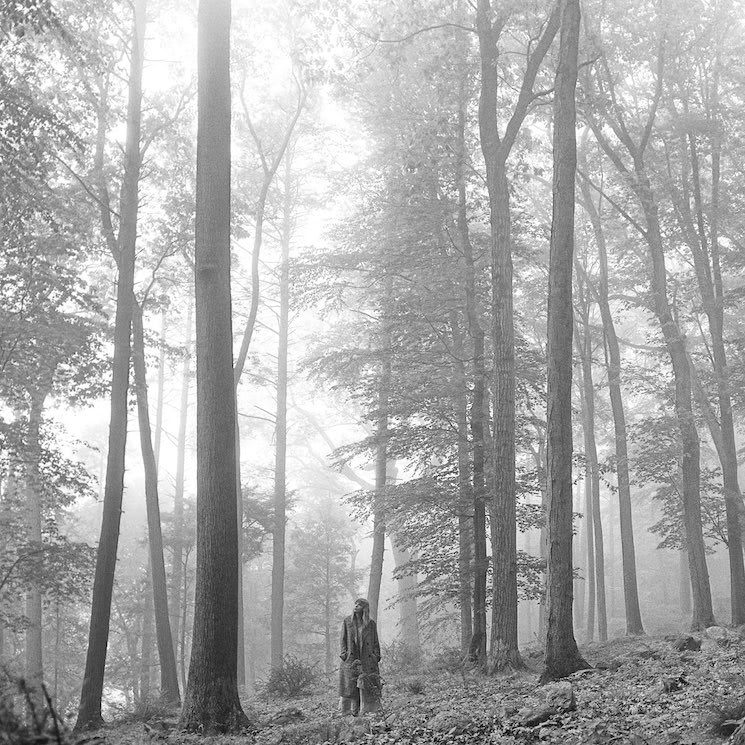Given her exhaustingly polarizing choke-hold on the public imagination, it can be hard to remember the whip-smart writer at the centre of the Taylor Swift Industrial Complex — the young woman who built an empire on genuinely brilliant, Brill Building-grade songcraft. Last year's sharp and effervescent Lover did something to correct that — it found Swift marrying her pop ambitions with her richly specific writing in ways that 1989 and Reputation never quite did. And, less than one year later comes folklore, taking the elusive alchemy that drove Lover to new places.
folklore feels like the culmination of a decade's worth of public growth and artistic fine-tuning. There are no travesties like "Me!" or "Look What You Made Me Do" that grind the record to a screeching halt, and several songs — "seven," "mirrorball," "the last great american dynasty" — stand among her best. Sometimes the folk rebrand feels a bit too on-the-nose — a song called "cardigan," the Sacred Bones-lite album art, the Bon Iver duet — but it's surprising how well it all works. What Swift lacks in subtlety she makes up for in her unironic commitment to a bit.
The record is built on softly pattering, near subliminal percussion, twinkling piano, lush swirls of guitar and strings, with much of the album's production helmed by the National's Aaron Dessner. It's a nice fit for Swift, and — thank god — she hasn't lost her knack for solid hooks. However, it's her words that make folklore what it is — the record is a powerful reminder that there are no other pop artists doing what she does. Swift's narratives on folklore are more blurred and fractured than they once were — songs weave among each other, conversations from different perspectives, different years, told by different voices.
Swift is still unquestionably a pop artist, and folklore is unquestionably a pop album, albeit a quiet one — and as is the case with most recent pop albums, it's about four songs too long. It's hard not to wish that Swift would apply her written concision to her tracklisting, to do away with the stream-grabbing bloat and deliver something more thoughtfully tailored.
Still, it's hard to complain about too much of a good thing. Where it ultimately stands within her catalogue will take more time to decipher, but folklore nonetheless feels like a watershed moment for Swift. It's proof positive that she's one of our better pop chameleons, and a palette cleanser after several intriguing, if sometimes questionable, sonic detours. Where she'll end up next is anyone's guess.
(Republic Records)folklore feels like the culmination of a decade's worth of public growth and artistic fine-tuning. There are no travesties like "Me!" or "Look What You Made Me Do" that grind the record to a screeching halt, and several songs — "seven," "mirrorball," "the last great american dynasty" — stand among her best. Sometimes the folk rebrand feels a bit too on-the-nose — a song called "cardigan," the Sacred Bones-lite album art, the Bon Iver duet — but it's surprising how well it all works. What Swift lacks in subtlety she makes up for in her unironic commitment to a bit.
The record is built on softly pattering, near subliminal percussion, twinkling piano, lush swirls of guitar and strings, with much of the album's production helmed by the National's Aaron Dessner. It's a nice fit for Swift, and — thank god — she hasn't lost her knack for solid hooks. However, it's her words that make folklore what it is — the record is a powerful reminder that there are no other pop artists doing what she does. Swift's narratives on folklore are more blurred and fractured than they once were — songs weave among each other, conversations from different perspectives, different years, told by different voices.
Swift is still unquestionably a pop artist, and folklore is unquestionably a pop album, albeit a quiet one — and as is the case with most recent pop albums, it's about four songs too long. It's hard not to wish that Swift would apply her written concision to her tracklisting, to do away with the stream-grabbing bloat and deliver something more thoughtfully tailored.
Still, it's hard to complain about too much of a good thing. Where it ultimately stands within her catalogue will take more time to decipher, but folklore nonetheless feels like a watershed moment for Swift. It's proof positive that she's one of our better pop chameleons, and a palette cleanser after several intriguing, if sometimes questionable, sonic detours. Where she'll end up next is anyone's guess.




